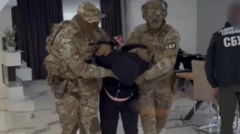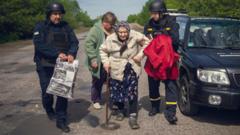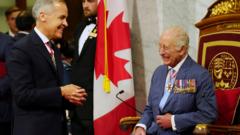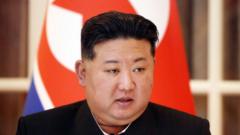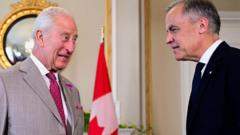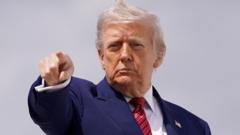In a recent exchange of strong words, both US President Donald Trump and Kremlin officials react to the intensified military conflict in Ukraine, raising questions about diplomatic relations and future negotiations.
**Trump Calls Putin 'Crazy', Kremlin Responds with Concern Over Emotional State**
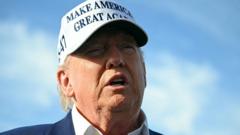
**Trump Calls Putin 'Crazy', Kremlin Responds with Concern Over Emotional State**
Kremlin spokesperson claims Trump’s remarks reflect emotional distress amidst rising tensions in Ukraine.
The Kremlin has labeled US President Donald Trump as displaying "emotional overload" after he referred to Russian President Vladimir Putin as "absolutely crazy." Trump's comments came in response to Russia's largest aerial assault on Ukraine, which resulted in the deaths of 13 civilians from drones and missiles. On his social media platform, Truth Social, Trump expressed his discontent over the escalating violence, stating, "Needlessly killing a lot of people," and suggested that "something has happened" to Putin that pushed him towards extreme actions.
Dmitry Peskov, a spokesperson for the Russian government, suggested that Trump’s emotional reaction was not unique, noting that "everyone involved" was experiencing similar sentiments due to the intense nature of the conflict. Meanwhile, German Chancellor Friedrich Merz indicated a significant shift in arms policy, stating that all range limits have been lifted on weapons supplied to Ukraine, amid discussions of potentially supplying Taurus missiles, which have a substantial range.
This latest wave of aggression from Russia marked its largest drone assault since the beginning of the full-scale invasion in February 2022. On one particular night alone, over 367 drones and missiles were launched against Ukraine. Ukrainian President Volodymyr Zelensky criticized the aerial attacks as politically motivated rather than strategically advantageous, framing them as a choice by Putin to prolong the war at the cost of lives.
As diplomatic discussions continue, the international community watches closely. Russia’s defensive measures included intercepting drones from Ukraine, with claims of thwarting 20 such attacks over various regions. German Chancellor Merz emphasized that Ukraine can now respond effectively to military targets within Russia, indicating a potential turning point in the war dynamics.
Trump’s rhetoric extended beyond just Putin; he also criticized Zelensky, asserting that his comments create complications and suggesting a need for a more restrained dialogue from the Ukrainian leader. The U.S. administration is torn between supporting Ukraine and seeking a resolution through negotiation, with Trump advocating for an increase in sanctions against Russia while also favoring peace talks.
While there have been efforts for negotiation, including a phone call last week between Trump and Putin discussing a potential ceasefire, skepticism remains. Putin’s vague commitments to "work with Ukraine" are viewed by many as attempts to stall rather than genuinely pursue peace. The ongoing conflict sees Russia controlling approximately 20% of Ukrainian territory, with Kyiv currently exploring all possible avenues to reclaim its sovereignty and ensure the safety of its citizens.



